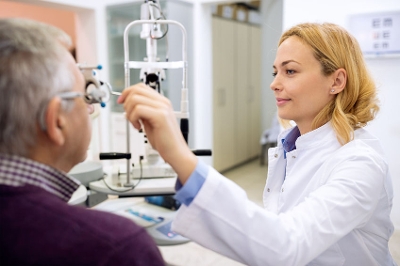You have likely heard the terms blind or legally blind, but what about low vision? What is low vision and if someone has low vision, does this mean they are blind? To answer these questions, we need to know what causes low vision and what the different terms, low vision, legally blind, and blind mean.
What causes vision impairments?
A vision impairment may be caused by an eye condition or disease that you are either born with or that develops over time. Causes of low vision include macular degeneration, cataracts, glaucoma, albinism, diabetic retinopathy, retinitis pigmentosa, stargardts, and others. These eye conditions affect millions of people every year. Impaired vision can also be the result of an injury.
What differentiates low vision from blindness?
Low Vision: A term used to describe the vision of a person who has an eye disease or condition in which visual acuity is 20/70 or greater in the better-seeing eye and that cannot be fully corrected with regular eyeglasses, contact lenses, medication, or surgery. Despite all conventional treatment, vision remains blurred or distorted, and it interferes with the ability to perform everyday activities.
Legally Blind: In most cases, this describes the vision of a person who has a visual acuity of 20/200 or greater in the better seeing eye. This would mean that if you are legally blind you would have to stand 20 feet away from an object to see it clearly that someone with 20/20 vision could see at 200 feet away.
Blind: Though blindness means having a lack of vision, most people who are blind do not have complete or total vision loss. Blind may be used to describe someone with a severe vision impairment that cannot be corrected with glasses or through surgery. Eighty-five percent of people who are blind have some light perception or a very limited field of vision; fifteen percent of people who are blind have complete blindness.

If you are experiencing changes in your vision, contact your eye care professional to schedule a comprehensive eye exam. Catching an eye disease in its early stages will give you and your doctor the opportunity to discuss treatment options and possibly slow the progress of a developing eye disease.
Changes in vision can have a direct impact on performing everyday tasks, connect with us to find the low vision aids that are the right fit for you and your lifestyle.
Feb 03, 2021


